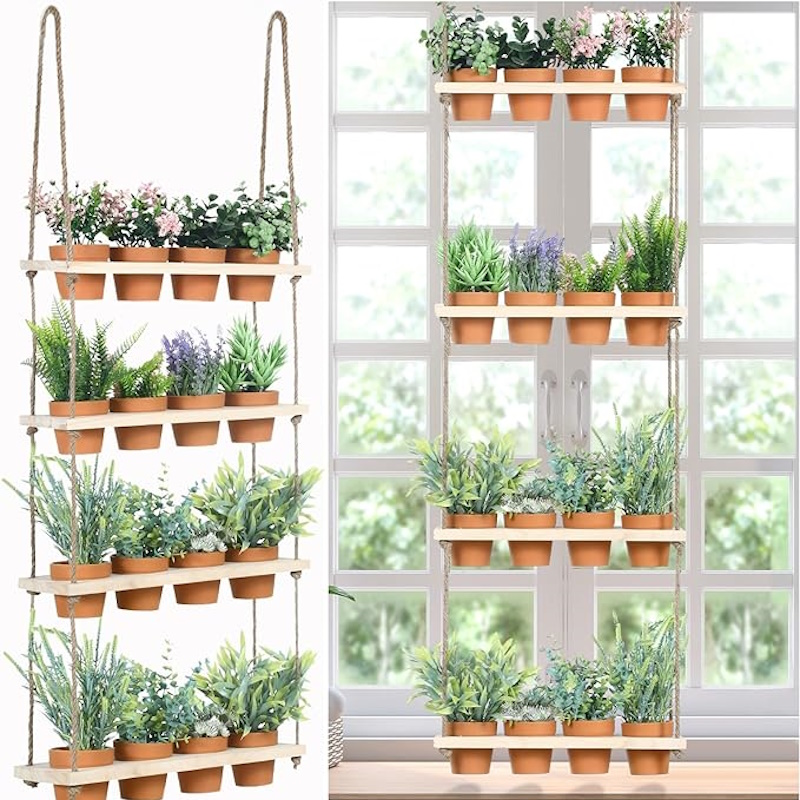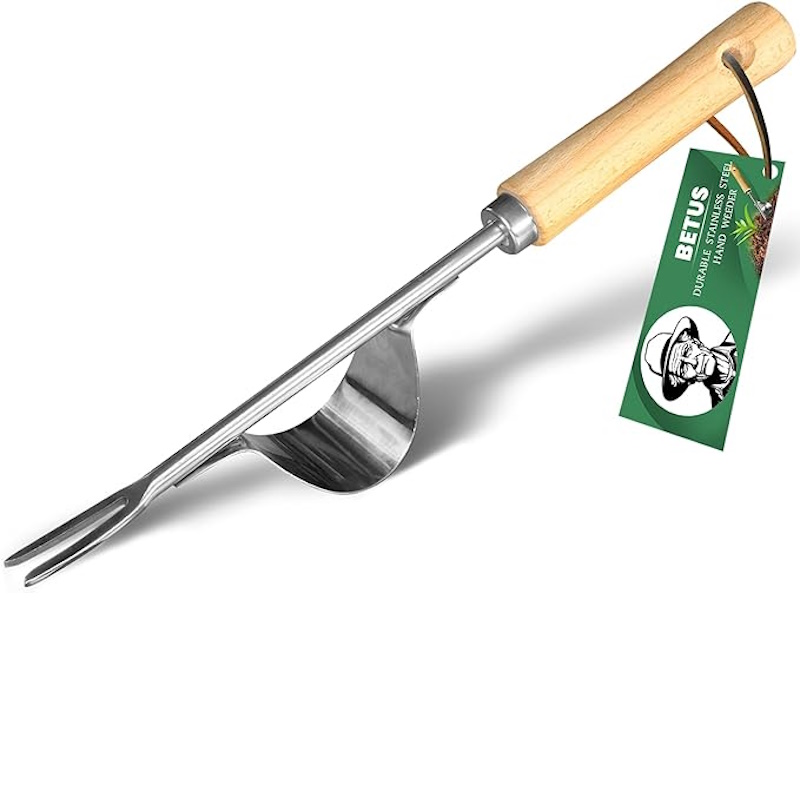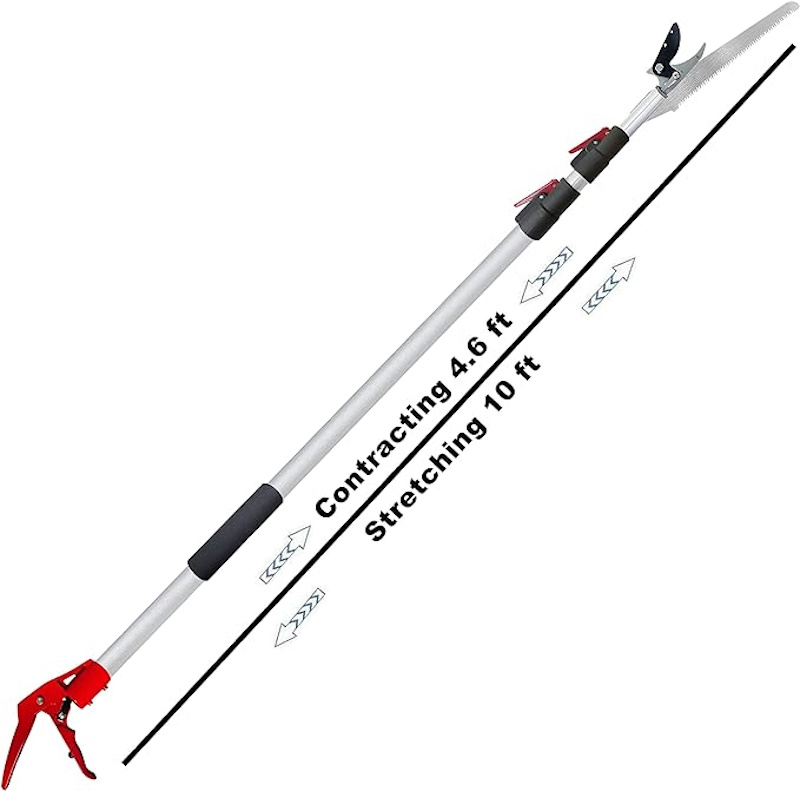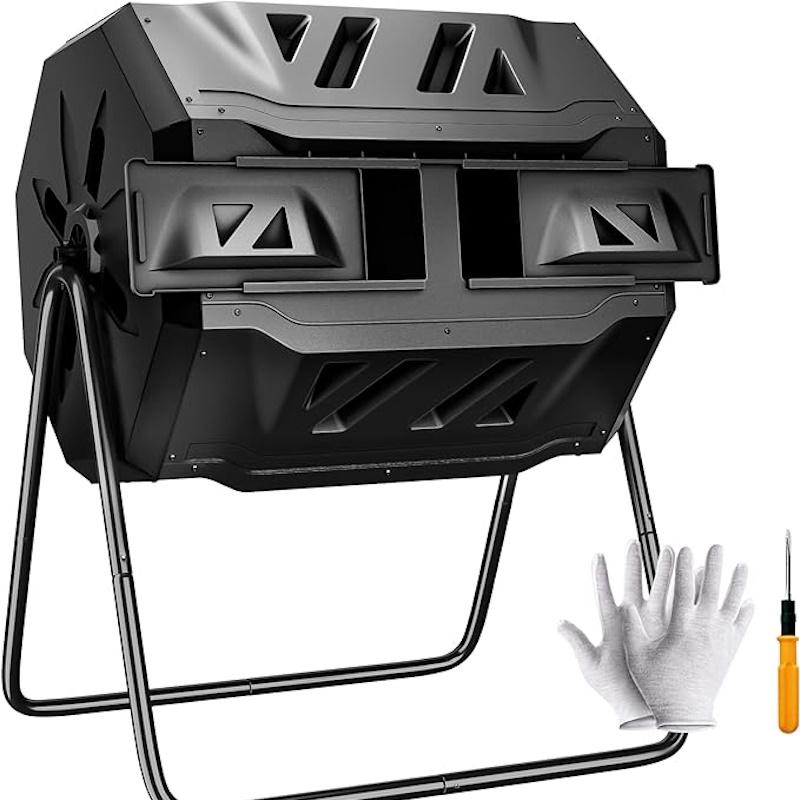5 beginner gardening tasks – fun and easy jobs, recommended by gardening experts
If you're new to gardening or aren't sure how to tackle your backyard, try starting with these simple and fun gardening tasks

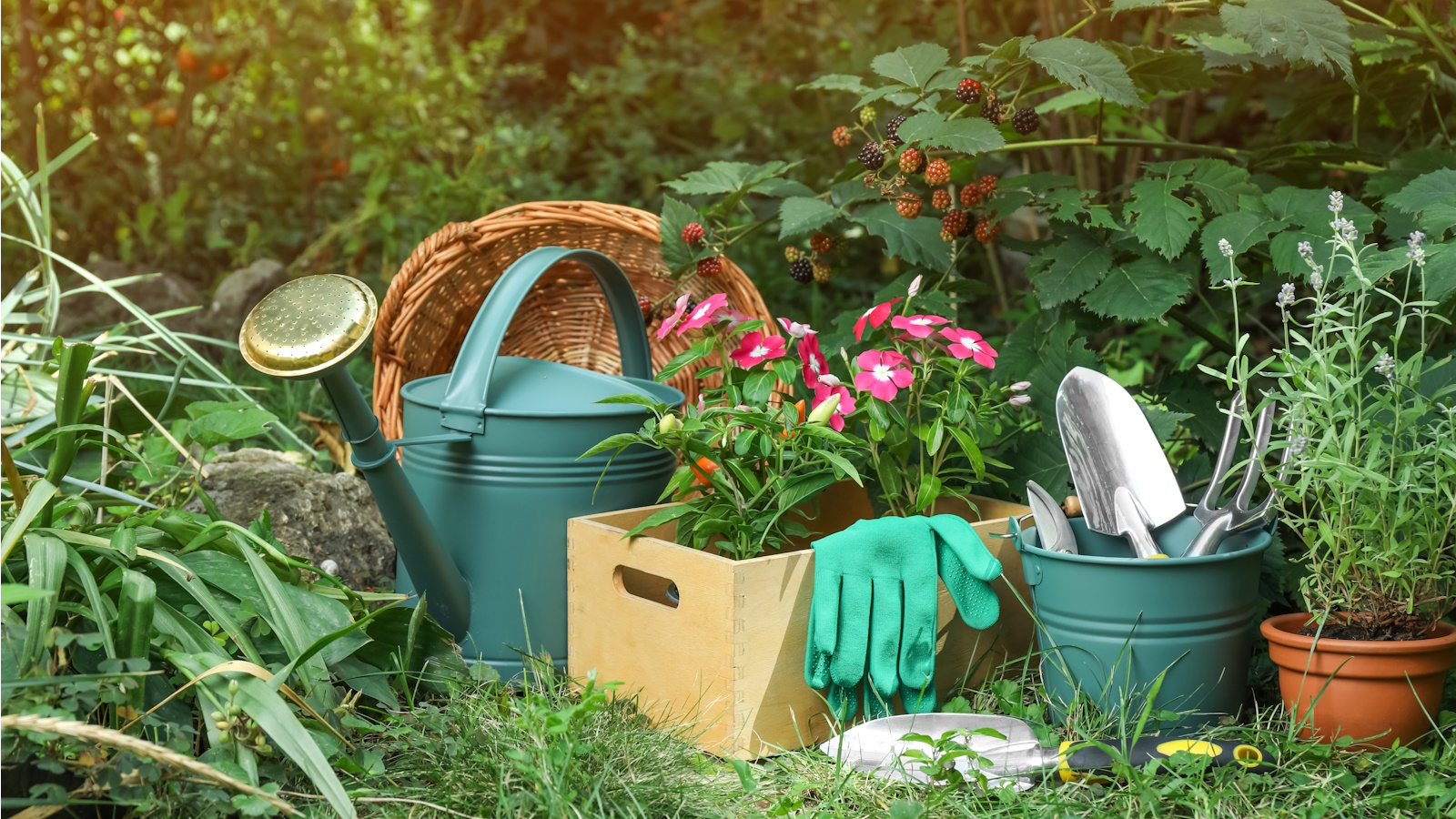
National Garden Week is celebrated each year across the US in the first week of June to promote the joy of gardening, floristry and all things plants. If you're a novice gardener or have never picked up a trowel before, this week is a great opportunity to dive into the world of growing and learn all about gardening.
Equipped with essential gardening tools and having explored different backyard ideas, you can have a go at some easy gardening tasks to start transforming your outdoor space into your dream garden. You don't need to have extensive knowledge to start gardening, as it's all about having fun and learning something new along the way.
We've spoken to experts about what to do if you have no idea where to start in your yard and they suggested some easy tasks for beginner gardeners to get busy with.
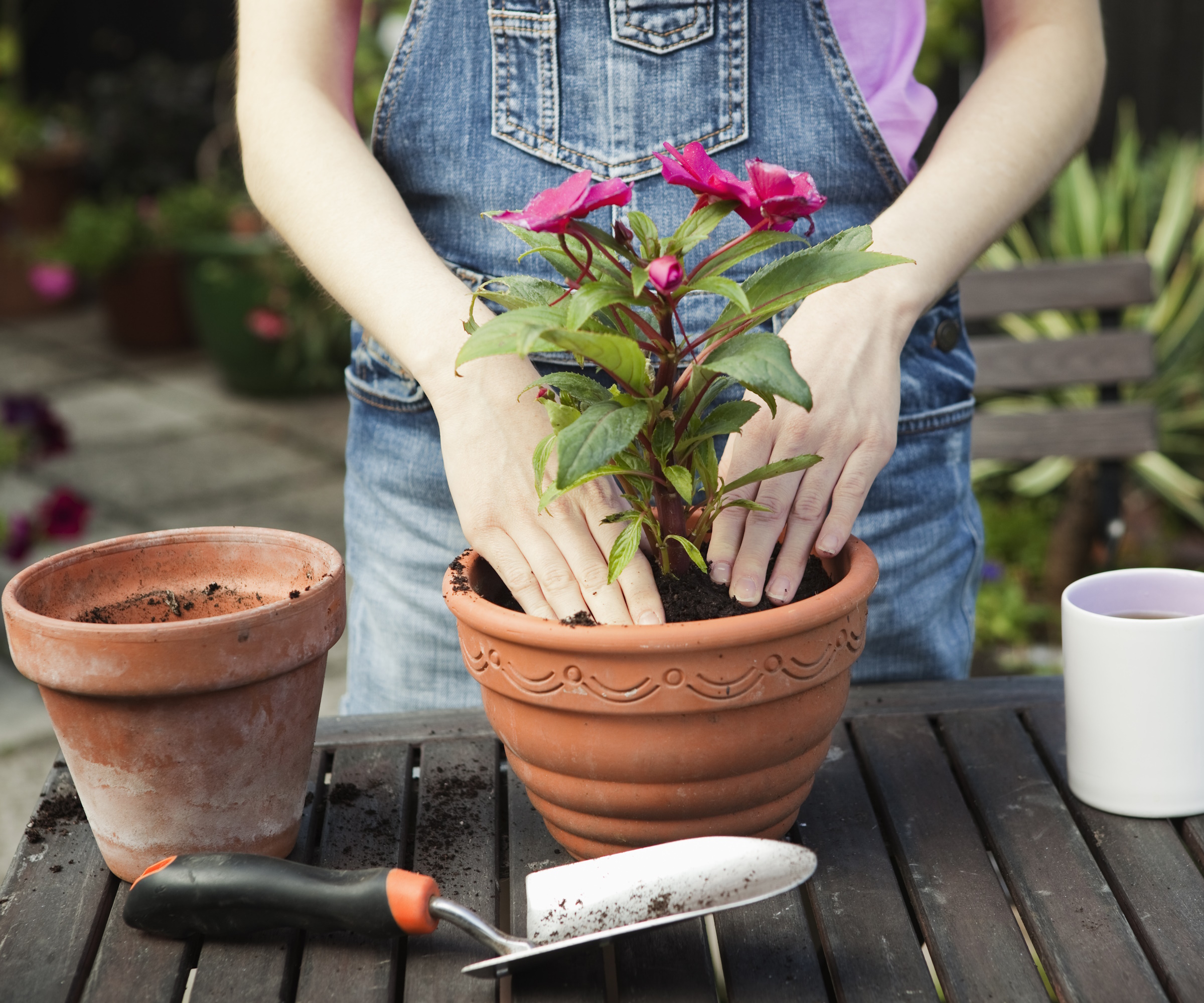
5 tasks for beginner gardeners
New to gardening? Not sure what needs doing in your backyard? We've got some fun and easy tasks for beginner gardeners to try out with expert advice to help you explore the world of growing.
1. Create a herb garden
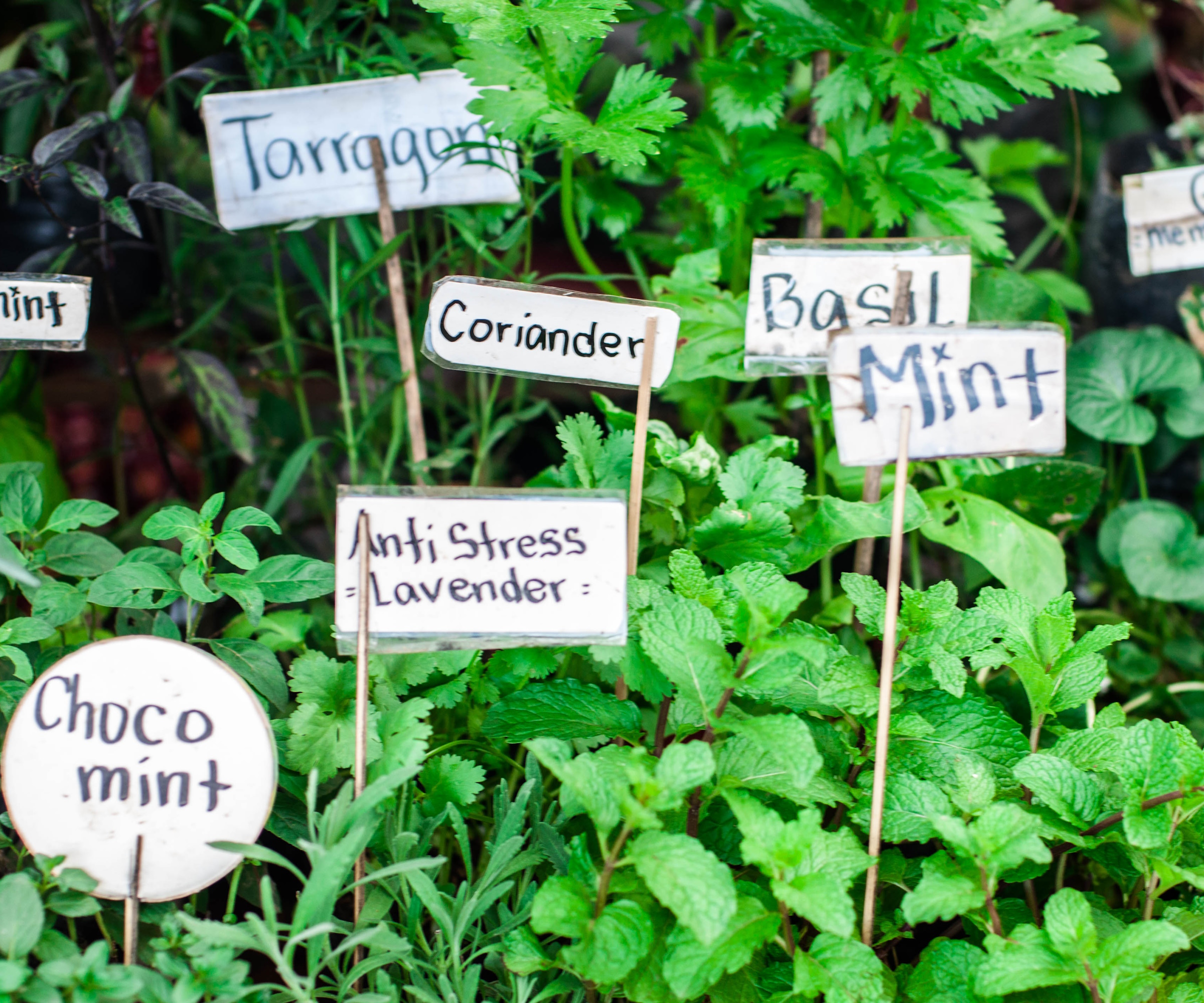
Herbs are some of the easiest plants to grow and there are so many different ways to make a herb garden in your backyard. Plus, you can choose a wide range of aromatic herbs to grow so that you can plant a fragrant garden.
'Locate a sunny spot since herbs grow best with a minimum of six hours of direct summer sun,' says Miri Talabac, horticulturist at the University of Maryland Extension Home and Garden Information Center.
'Soil must drain very well, so use a container that has at least one unobstructed drain hole in its base. Don't use gravel, pot shards or other material in the base; just fill it with potting mix,' she adds.
Design expertise in your inbox – from inspiring decorating ideas and beautiful celebrity homes to practical gardening advice and shopping round-ups.
It can be a good idea to make a herb planter to help your herbs drain well and not become too wet as they might if grown directly in the ground. You can also grow herbs indoors and create an indoor herb garden.
As a keen indoor gardener, I've chosen to make my herb garden an eye-catching feature using beautiful herb containers - like the hanging herb garden planter for windows below - displaying the plants beautifully while having them in close proximity to my kitchen for convenience.
'Thyme, parsley, basil, chives, and rosemary are among easy, popular options,' notes Miri.

Miri Talabac is a Certified Professional Horticulturist who has worked as a horticulture consultant for the University of Maryland Extension Home and Garden Information Center since 2019. She has 22 years of experience working at a retail garden center prior to joining Extension. She is a graduate of the University of Maryland with a focus in entomology.
2. Weed beds and paver slabs
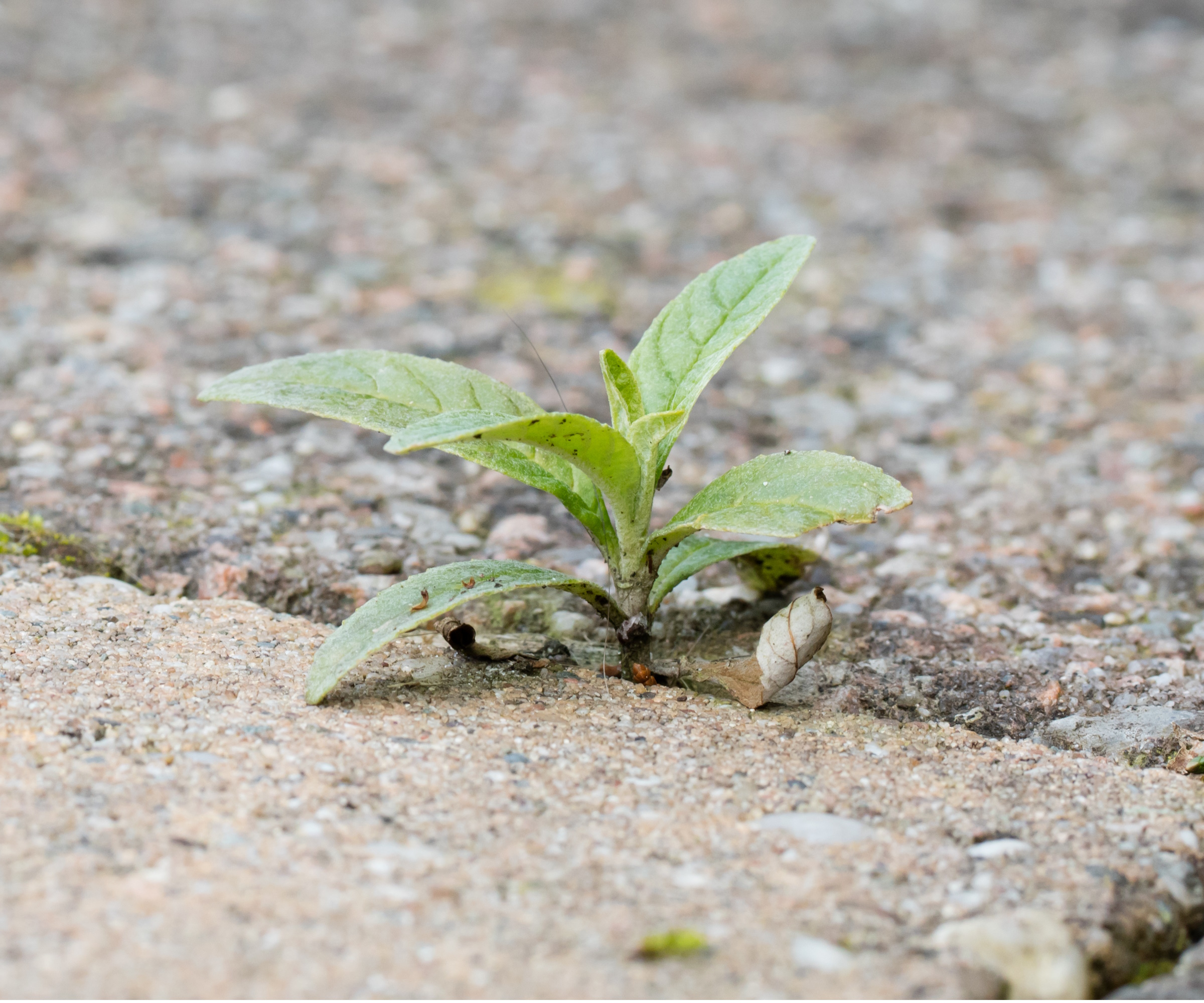
The first thing to do when sprucing up your backyard is to give it a tidy up. You might want to get to grips with getting rid of weeds if you have lots of unwanted plants growing in undesirable places.
'Weed removal is either physical (pulling up, cutting down, or smothering by blocking light) or chemical (herbicides),' says Miri. 'Identify the weed as best you can, since the most effective control methods can depend on what type of plant it is,' she suggests.
Whether you need to remove weeds from pavers or garden beds, there are a few methods you can use.
'I genuinely love weeding and find it so satisfying really digging out those long tap roots with a manual hand weeder - like the one I recommend below - which is the only way to ensure the weeds will be gone for good,' says Rachel Bull, Head of Gardens at Homes & Gardens.
'Clearing a patch of soil of weeds and getting my hands into the soil is so therapeutic. I also find it handy to have a cushion or kneeler when I'm doing this, like this kneeling pad from Amazon,' she adds.
It is also possible to make weed killer using items in your kitchen cupboard. For example, you can use salt to kill weeds and even vodka kills weeds.
It's good to note that some weeds will take some time to go completely. 'Be prepared to potentially take weeks or months making repeated efforts when tackling well-established perennial weeds,' says Miri.

Rachel is a gardening editor, flower grower and floral designer. Her journalism career began on Country Living magazine, sparking a love of container gardening and wild planting. After more than a decade writing for and editing a range of consumer, business and special interest titles, Rachel became editor of floral art magazine The Flower Arranger. She then trained and worked as a floral designer and stylist in London for six years, before joining the Homes & Gardens team.
3. Plant evergreen plants for all-year interest
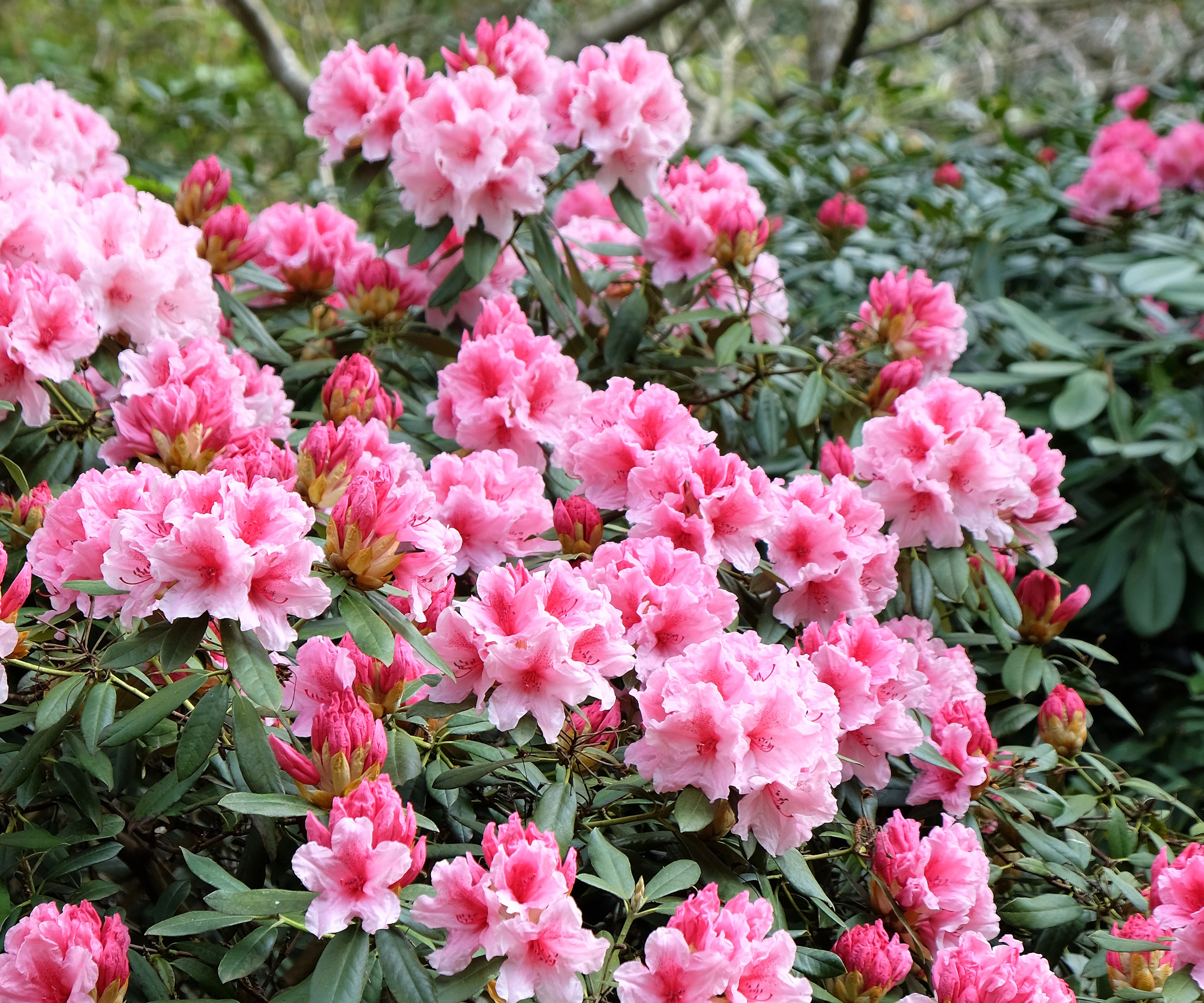
When choosing plants for your yard, you should consider planting some of the prettiest evergreen plants that will provide you with year-round interest. Evergreen plants are those which have foliage on their woody structures in every season. Having a variety of evergreen shrubs in your yard is a good way to ensure your garden is full of leafy plants no matter the time of year.
'There are so many cultivars of evergreen plants these days that entire gardens can be made with nothing else and still be very interesting all year long,' says Miri. 'Growth habits can also draw the eye in the landscape, ranging from upright columns, rounded balls, weeping curtains, formal cones, topiary spirals and loose mops,' she adds.
Although the name may suggest green hues, evergreens can also come in a range of beautiful colors with some even flowering.
'Conifers and broadleaf evergreens can both be used for their foliage texture contrasts and foliage colors. Many evergreens have golden-yellow or silvery gray-blue forms in addition to many shades of green,' notes Miri.
Some of the best evergreens include this Mugo Pine from Nature Hills and this Roseum Elegans Rhododendron from Nature Hills.
4. Prune away dead and damaged stems and leaves
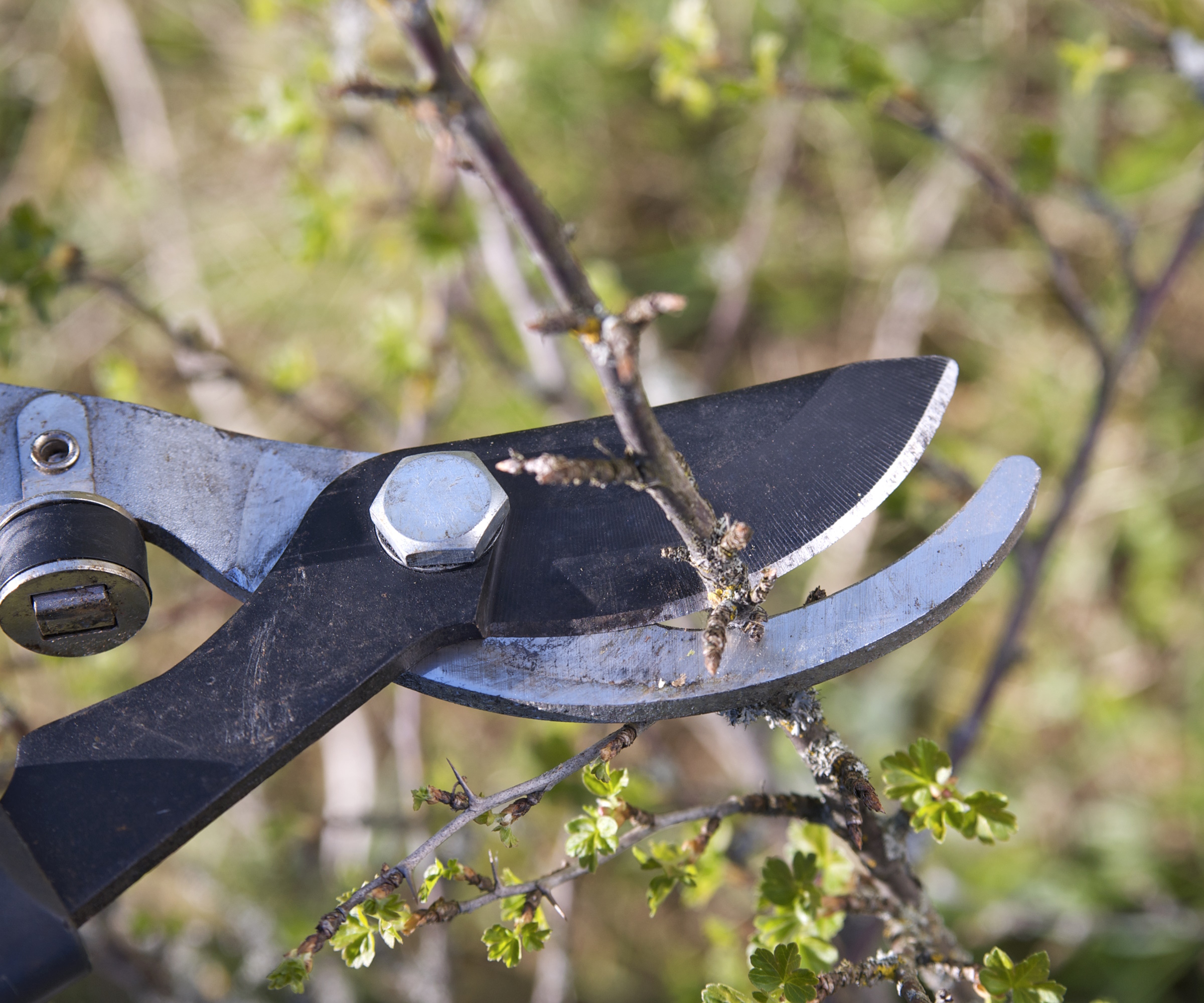
It's always a good idea to keep on top of your plant care to ensure your plants are growing healthily and happily. Pruning away any dead and damaged plant material is an essential part of this.
Whether you're pruning tree branches or pruning rhododendrons and other flowering plants, removing any dead and damage leaves and stems can help promote further growth in your plant.
'Dead wood can always be removed any time of year, since you don't want it damaging the tree or shrub further when it breaks away on its own,' suggests Miri. 'Plus, if it died due to disease or pest activity, you can avoid having that spread by removing the infected or infested branch,' she adds.
It's always best to do some research into pruning your specific plants and read up on pruning mistakes to avoid, including having the best tools for the job.
All gardeners need good quality pruning shears. While it can seem more attractive to go for a cheaper pair of shears, purchasing tools that are well-made and long-lasting is a more sustainable approach,' says Thom Rutter, former professional gardener and content editor at Homes & Gardens.
'These Felco pruning shears, available from Walmart, have long been my go-to tools for most pruning jobs. They make light work of all perennial and annual cutting back and can manage to cut through modest shrub and tree branches, although it is best not to attempt any stem that is wider than 1/2 inch in diameter,' he adds.
If you need to get to branches that are harder to reach, Thom recommends extendable shears like the ones below. 'With a telescopic handle, tree and shrub pruning is made so much easier, helping you to avoid balancing precariously on a ladder. If you are anything like me, you will be amazed at how often you use these,' he says.

Thom is a Content Editor within the Gardens Team at Homes and Gardens. He has been working as a gardener and garden writer for several years. Whilst completing his Horticultural Traineeship at the Garden Museum, London, he was able to gain experience at many of the UK's world-famous gardens, including Sissinghurst, Lowther Castle, and Iford Manor. Following this, he worked for two private estates in Tuscany, Italy.
5. Set up a compost bin
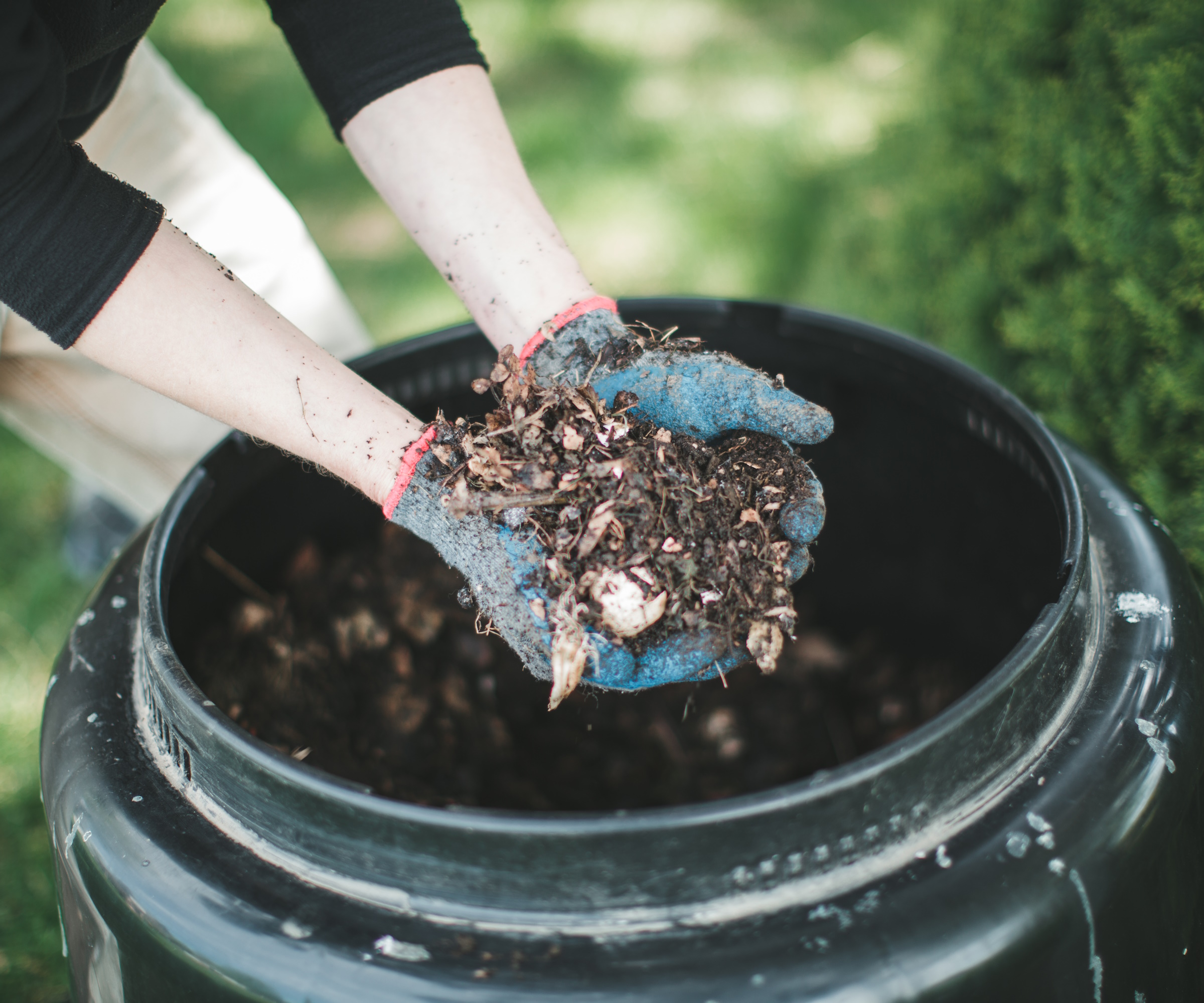
There are lots of simple ways to make an eco-friendly garden if sustainability is a priority to you. Making a composter is just one way to use kitchen waste in the garden and improve your soil health.
Making compost involves recycling organic materials, including food scraps and plant matter, and turning it into a fertilizer for your plants. It's easy to set up a compost bin as somewhere to store your materials while they break down. You can then use your compost when you need it.
'When building a compost bin, keep in mind that you want the microbes doing the hard work to have plenty of access to oxygen,' says Miri. 'Well-oxygenated compost does not smell like anaerobic (oxygen-deprived) piles of decaying plant matter,' she adds.
It's a good idea to set up a compost bin with some air circulation, whether that's one you buy online or one you build, such as with chicken wire.
'Compost requires a balance of 'green' (nitrogen sources) and 'brown' (carbon sources) material to fuel the desired microbe growth,' says Miri. Try using some unusual compost ingredients to add a wider range of nutrients to your compost heap.
FAQs
What's the first thing I should do in my garden?
A good place to start when first tackling your garden is understanding your soil a bit more. Not only is it important to know what soil type you have in your outdoor space, you should also test your soil health and make the appropriate amends to get it to a high enough quality to support any plants you wish to grow. It can be a good idea to also test the pH of your soil so that you know which plants will thrive best in your yard.
You don't have to have extensive knowledge to be a gardener. Whether you're brand new to working with plants or are returning to the hobby, National Garden Week is the perfect opportunity to have a go at some fun and easy gardening tasks. Make sure to also familiarize yourself with your summer gardening checklist so that you can get all the necessary jobs done this season.

Tenielle is a Gardens Content Editor at Homes & Gardens. She holds a qualification in MA Magazine Journalism and has over six years of journalistic experience. Before coming to Homes & Gardens, Tenielle was in the editorial department at the Royal Horticultural Society and worked on The Garden magazine. As our in-house houseplant expert, Tenielle writes on a range of solutions to houseplant problems, as well as other 'how to' guides, inspiring garden projects, and the latest gardening news. When she isn't writing, Tenielle can be found propagating her ever-growing collection of indoor plants, helping others overcome common houseplant pests and diseases, volunteering at a local gardening club, and attending gardening workshops, like a composting masterclass.
